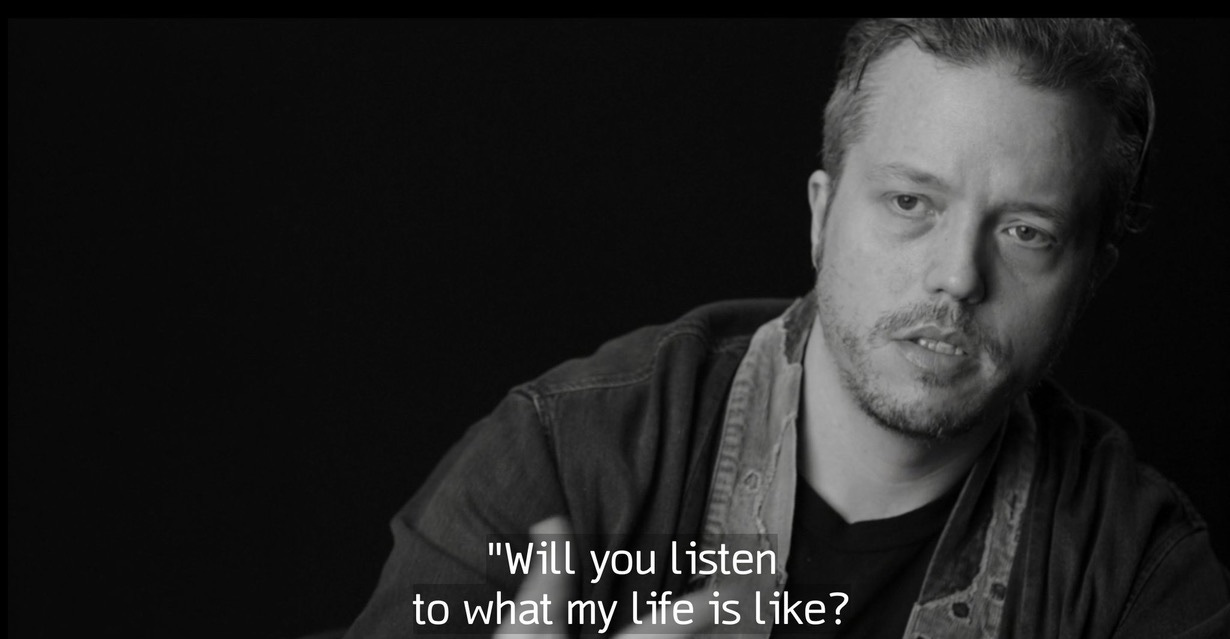They Did Not Have A Responsibility To Do The Impossible
We are good at telling ourselves that all we can do is bear witness
I’ve been thinking a lot lately about what it means to bear witness to suffering.
There is, obviously, quite a bit of suffering happening in the world. And in a time when we all have ready access to some kind of news source for our entire waking lives, it’s hard not to be confronted daily with the compounding evidence that “man hands on misery to man,” as Philip Larkin put it.
The truth of the matter is that we are all so disempowered and disenfranchised by the systems under which we live and labor1 that it’s very difficult to confront all those horrors each day and still have anything left in the tank. Yet that is exactly what is asked, and sometimes loudly demanded of and often by those of us who are not doing the worst of the suffering: to bear witness to it. “Don’t ignore [x place on the globe],” and “Don’t look away from [x humanitarian crisis],” and “REMEMBER: this 👏 is 👏 not 👏 normal 👏.”
I’m so horrified all the time and most days I don’t know where to put all that weight. You could spit in any direction and hit a fine example of the horrors but Florida in particular has really stood out of late,2 even moreso than usual. In the span of a few days they passed state laws making it easier to obtain a death penalty conviction and making the death penalty applicable to cases of child sexual abuse. This on the heels of paving the way nationally in banning drag shows and gender-affirming care, on the grounds that those things are a version of child sexual abuse. I’ll leave you to do the math about the connections between those laws. It is an unspeakably grim result.
It’s hard to even imagine what to do about that short of a few things that would get a federal-type knock on your door if you published them on the internet under your own name. And so I find myself falling prey to the very wrongheaded impulse of just hoping that someone who is in charge will manage to do something, anything, to sort all this out. This is of course completely contrary to the way that any substantive change on behalf of regular people has ever been won, and certainly contrary to the theories of change I have espoused for years in this publication, but here we are. Such are the consequences of bearing witness to so many horrors that you barely have time to process the last one before you learn about the next.
But because I still have hope—indeed, I can’t let go of it, perhaps out of sheer naïveté, perhaps for fear that without it I would have nothing left—I feel compelled to share a story about one person who used what power he had with reckless abandon to come to the aid of people who had no hope remaining. And in doing so he also enabled others to see their small, collective power and turn it selflessly outward for the greater good. He would’ve been well within his rights to bear witness, and bear witness only, to a tragedy that he was under no obligation to avert. Instead he pulled off something approaching a miracle. That man was Arthur Henry Rostron, captain of the RMS Carpathia, an ocean liner that happened to be crossing the Atlantic Ocean in the general area of the Titanic on April 14, 1912.
Rostron was awoken by a radio operator who had first heard the Titanic’s distress call a half-hour after the ship struck ice. He quickly went wild, converting every inch of his own vessel’s capacity into a rescue operation, diverting all steam to the engines, turning the dining rooms into aid stations, and collecting warm clothes and blankets from passengers. And all the while, he was hauling ass across the same icy seas that had cracked the hull of the Titanic.
Carpathia’s absolute do-or-die, the-engines-can’t-take-this-forever top speed was fourteen knots. Dodging icebergs, in the dark and the cold, surrounded by mist, she sustained a speed of almost seventeen and a half.
No one would have asked this of them. It wasn’t expected. They were almost sixty miles away, with icebergs in their path. They had a responsibility to respond; they did not have a responsibility to do the impossible and do it well. No one would have faulted them for taking more time to confirm the severity of the issue. No one would have blamed them for a slow and cautious approach. No one but themselves.
…This ship and her crew received a message from a location they could not hope to reach in under four hours. Just barely over three hours later, they arrived at Titanic’s last known coordinates. Half an hour after that, at 4 am, they would finally find the first of the lifeboats. it would take until 8:30 in the morning for the last survivor to be brought onboard. Passengers from Carpathia universally gave up their berths, staterooms, and clothing to the survivors, assisting the crew at every turn and sitting with the sobbing rescuees to offer whatever comfort they could.
We would all, I’m sure, like to think that in Rostron’s position we’d have done the same. A more honest comparison might be to imagine ourselves as the passengers. Would we not only have accepted that our mad captain was going to risk our lives slaloming icebergs in the pitch black at top speed, but enthusiastically embraced it, giving up all of our own material comforts and getting to the real work of administering aid, aid which both included and transcended bearing witness to the stories of those rescued? You’d hardly blame them if they had risen up in protest of this insane plan. But they were willing to risk the endless cold and terrifying darkness, the same death as 1,500 passengers on the Titanic, for the smallest chance at saving whoever they could.
I hardly know what to do with this story, one I just came across for the first time last week. I’ve gotten choked up by it more than once, including just now as I pasted in that quote. I marvel that everyone in America doesn’t learn Rostron’s name when they learn the story of the Titanic. What inspiration and what power we are robbed of, in learning that senseless tragedy was the end of the story on that historic night. What an example we might have been set: that bearing witness might be demanded of us when there is nothing else to be done, but that we might also be poor judges of whether we’ve truly reached that point. That there might be a whole lot more we can do if we rise to the occasion and set an example that others might follow.
In the meantime, at those times when bearing witness is all we can do, well. Sometimes it does help, beyond the vagaries of “staying informed” or absorbing guilt like the proverbial goat. Some struggling people really do just need to be heard. I was blown away by the recent Sam Jones documentary Jason Isbell: Running With Our Eyes Closed, a raw portrait of the musician’s addictions and relationships. On camera, Isbell says something that I’ve been turning over in my head since:
There’s only one story. They say three, in your creative writing classes. But there’s only one, really, and that’s “Will you listen to what my life is like? You know, and let’s compare.”
Maybe that’s all I’ve ever done in this newsletter, in one way or another: ask you all to bear witness to my life in all its tumult and triumph and mundanity.
Because I know that if we have a duty to bear witness to suffering we also have a duty to bear witness to joy. It is spring and there are flowers coming up in the yard, and cherry blossoms erupting behind my neighbor’s house, and I can pet the tawny fur of my dog warming in the sunshine. I am learning to pay attention to all the wonders of the world again, as I do every year at this time, when all is new and bursting with life in a way that commands us to pay attention.
(Ironically I have fewer photos of all this than I might. I am an obsessive documenter of all things big and small that catch my eye, usually. But it has struck me lately that I have forgotten how to savor things, or am at least out of practice, and consequently I am working on leaving my phone behind when I go outside so that I might change my mode of thinking. To experience things as they are, and hold them in my mind, rather than taking in everything through the lens of my phone camera or the thought of what kind of tweet or Instagram post or newsletter I might get out of them is a brand new way of operating for me. Still working on that last one, clearly, given the paragraph you’ve just read.)
Anyway, here’s hoping that when confronted with the tragedies and joys of life, both great and small, that we find ways not only to bear witness, but to move ourselves and each other into action, into something larger. Otherwise I’m not sure what we’re all here for.
Thanks, as always, for reading. I’ll talk to you next week.
-Chuck
PS - If you liked what you read here, why not subscribe and get this newsletter delivered to your inbox each week? It’s free and always will be, although there is a voluntary paid subscription option if you’d like to support Tabs Open that way.
To differing degrees, certainly, and those differences are worth paying attention to, but ultimately the ceiling for all of us who don’t hold the world in economic and military thrall is the same.
I wrote this prior to the recent spate of men with guns shooting people who approach their homes or cars for completely innocuous reasons, which is its own kind of hellish.





We were talking about this very thing the other day during one of our activist/allies gatherings, the weight of bearing witness and the pervasive sense of hopelessness and powerlessness that accompanies it because the world runs on greed and cruelty. As with organizing with others to fight for the rights of workers and others, surrounding yourself with folks who share a passion recharges the batteries, gives some hope. At the meeting I trotted out my go-to mantras, courtesy of Bryan Stevenson: "Incredible things happen when you're proximate to those who suffer." ... and ... "Change happens when good people are willing to do uncomfortable things." These may sound lofty, naive or worse, but Stevenson has the chops to prove change can happen. And he certainly bore witness to the worst that "civilized" society has to offer. As hopeless as this existence indeed is most days, we can't give up. I know you won't.